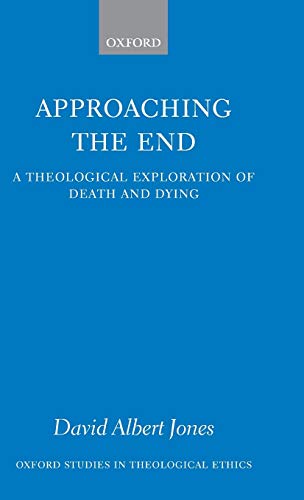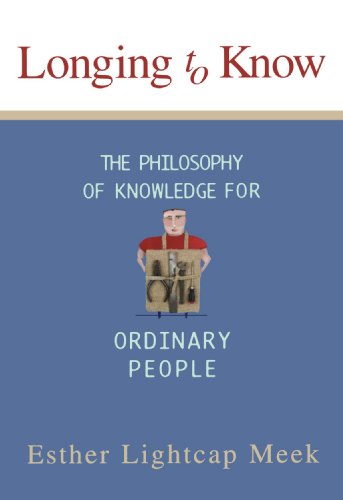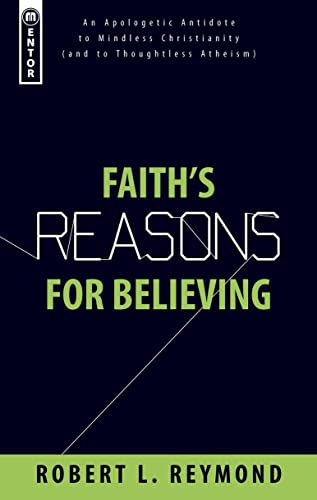I Sold My Soul on eBay: Viewing Faith Through an Atheist’s Eyes
Written by Hemant Mehta Reviewed By Reuben HunterThe unlikely combination of eBay, a ‘friendly’ atheist, and a former Christian pastor precipitated this ten-chapter book (with an accompanying discussion guide).
Chapters 1–3 describe how Mehta auctioned on eBay the opportunity for the winning bidder to send him to church, his journey from the Jain religion of his family into atheism, and the primary problems he has with what he describes as ‘religious teaching’. He came to reject Jainism on the basis of his doubts about karma and reincarnation (p. 29) and the idea of eternity (p. 31), and he argues that he might have retained a belief in ‘God’ if those who advocated faith had appealed more directly to his intellect. This is one of Mehta’s major criticisms throughout the book and although he uses ‘religion’, ‘faith’, and ‘Christian’ terminology interchangeably, he argues that anti-intellectualism characterises religious belief. Chapter 4, ‘What the Nonreligious Believe’, outlines Mehta’s views on different issues from prayer to atheist minority status and the meaning of life.
Chapters 5–8 describe Mehta’s experiences at fourteen different churches, categorised by their size. He visits a small church in downtown Chicago, the vast Willow Creek Community Church, and a selection in between, reflecting likes and dislikes about each. He explains both what it was like to meet the pastor as well as sit in the congregation. His most positive words are reserved for the mega-churches he visited with special praise for Rob Bell at Mars Hill Bible Church in Michigan (pp. 117–22) and Joel Osteen at Lakewood Church in Texas (pp. 123–27). On the latter he comments, “I may be an atheist, but I love Joel. My mom is a Jain, and she loves Joel” (p. 123).
Chapter 9, ‘What Works on a Sunday Morning and What Doesn’t—Suggestions to Help You Reach Out to Non-Christians’, is a synthesis of Mehta’s post-experiment thoughts. Here he raises five categories for positive comment (pp. 140–46), and is critical of a further eight (pp. 148–57).
The concluding chapter 10, ‘What It Would Take to Convert Me’, is something of a catch-all for the elements of Mehta’s thesis that he could not fit elsewhere in the book. He comments on a ‘debate’ he had with a church leader, his ideas about the concept of faith, and his objection to religious exclusivity, and he concludes with a statement and an appeal. He states that only a miracle will convince him that as an atheist he is wrong about God (p. 172), and he appeals that religious people should be more aware and more welcoming to atheists (p. 173).
In several ways this book is profoundly confusing. At one level, why would an atheist seek to “help Christians develop a clearer view of themselves and the way they come across to the people they want to reach” (p. 139)? Furthermore, why would Christians fund such an undiscerning survey and then seek to have the resulting views published for all to see? Mehta does speak warmly of some Christians he met, but I fear that it is misguided to ask one who denies the existence of God to pass judgement on his bride, an entity he simply cannot understand. This theological disconnect is, it seems, lost on those who advocate the church-growth/seeker-driven models of church, and, ironically, I think Mehta’s book exposes the folly of such a paradigm. Understanding, as he does, that he is their target audience, he is openly critical of those things that these churches do to impress the unbeliever (pp. 147–57), from filling in the blanks on a sermon handout (p. 103) to an over-emphasis on singing (p. 150).
At another level Mehta’s book raises embarrassing questions for the churches he criticised. He makes repeated mention about how people treated him as a visitor and about church latecomers. He also commented on the failure of the preaching to engage him intellectually. If these reflections are true, and I have no reason to doubt him, then this ungraciousness and lack of engagement require repentance and a re-evaluation regarding the role and responsibility of both the pastors and the church members.
This review is written at a distance from the U.S context, but my final observation relates to the actual churches Mehta visited. Most of those listed are unknown to me, but of those I did know, I have questions about the theological trajectory of their ministries. I can only wonder how Mehta’s book might have read had he spent those weeks at a single church with an educated articulate pastor who engages culturally while allowing expository preaching to drive the ministry. The sustained exposure to both the word of God rightly preached and the people of God practically displaying, as they do in their multi-age/ethnic/socio-economic interaction and service, His glory may, had Mehta been given eyes to see, have borne a more fruitful outcome.
I Sold My Soul on eBay contains several brief summaries of atheism with all the frustrating inconsistencies that accompany such a worldview. It also makes some uncomfortable and some interesting observations about American evangelicalism, but as a model for how the Church should do evangelism, it falls short. How the project made it to print still baffles me.
Reuben Hunter
Spicer Street Church
International Presbyterian Church
Ealing, England, UK
Other Articles in this Issue
Though his primary concern was how to persuade people from diverse backgrounds to embrace the gospel of Jesus Christ (1 Cor 9:12, 23), Paul, nonetheless, embodies a principle common to all who would provide leadership to a community comprised of a multiplicitous collection of rigid truth claims and behaviors...
The Ethnic Enemy—No Greek or Jew . . . Barbarian, Scythian: The Gospel and Ethnic Difference
by Keith FerdinandoWhatever 'globalisation' may be, it has been accompanied by insistent and sometimes violent affirmations of ethnic identity...
Despite a small flurry of attention over the past decade, Adolf Schlatter (1852–1938), Tübingen professor of New Testament and author of more than 440 written works, remains one of the most neglected yet illuminating theological voices of the past one hundred years...
Commentators have customarily interpreted Phil 2:12 as a reference to "working out" one's personal salvation...
Salvation History, Chronology, and Crisis:1 A Problem with Inclusivist Theology of Religions, Part 1
by Adam SparksA fundamental requirement in an inclusivist understanding of the relationship between Christianity and other religions is evidence of God's salvific activity outside of any knowledge of Christ...






